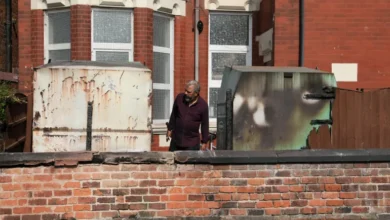Navigating Legal Landscapes: Insights Into the East Hampton Town Justice Court
What if you had to take a class on the particular idiosyncrasies of the laws wherever you resided in order not to run afoul of the law? It might sound like something out of a dystopian novel’s first few chapters, but it is relatively close to the truth when you consider how many different legal systems regulate our lives. The local justice court in East Hampton, New York, offers a small-scale version of this experiment.
To be fair, the East Hampton Town Justice Court serves as the primary law enforcement venue for members of the town’s 22,000-person population, whose total area encompasses 70,000 square miles of the easternmost portion of Long Island, or “the Hamptons.” Although the court’s authority applies only within the town limits, the judicial proceedings still adhere to New York State law and the protocols of the American court system. However, the East Hampton Town Justice Court handles 20,000 cases per year, so simply visiting the court can once again throw you into the whirlwind of the legal system.
What if you do not speak English well enough to understand the judge’s proceedings? In most courts, you would have the right to request an interpreter. In the East Hampton Town Justice Court, however, interpreting services are available upon request. Unfortunately, request is not always followed by subsequent receipt. Consequently, anyone facing a potential traffic infraction as a result of their lack of English proficiency may want to consider hiring an attorney early in the case.
The Upstate New York town of East Hampton receives thousands of tourists every year from around the globe, and those who travel there average 13 days of residence within the town limits. Whether they have mistakenly received a noise citation, gotten into a fight, or faced off against the police at a local bar, they will eventually find themselves in front of the East Hampton Town Justice Court trying to robustly defend their point of view while understanding the ramifications of the judge’s decisions.
The East Hampton Town Justice Court is housed in a building that has served as a government building for over two centuries. The old structure sits in the middle of Amagansett, where the summer population flourishes, and the year-round populace resides. The courtroom itself displays the age of its surrounding architecture, complete with dark wood beams and the old-world appeal of real wood doors instead of cheap steel.
Just because East Hampton may appear a sleepy little town on the easternmost tip of Long Island, don’t let that lead you into assuming the legal system follows similar regional behaviors as you may find in similar climates. While many of the cases that go through the East Hampton Town Justice Court could just as easily be heard in a court somewhere in the American south, the customer service at the court does not always lend itself to happy endings, especially if you do not have a lawyer to help you navigate the system. For example, this court uses a ticket window system for most payments, and these windows are only open during limited hours, making it difficult for some people to pay off their debts to the court.
At the end of the day, the East Hampton Town Justice Court is just one of many variations on the global legal system. Countries around the world each have different procedures for handling their cases, although one of the most popular bench styles is the inquisitorial model. In this style, judges serve as investigators and arbiters of bench proceedings, unlike the American model, where judges primarily serve as arbiters. The inquisitorial model may have become popular due to its ease of use; people do not have to compel witnesses to testify or produce evidence if they do not want to. However, Eastern Asian countries and Saudi Arabia also employ the adversarial model for some types of cases.
In short, the East Hampton Town Justice Court serves its purpose as a community court for a small Hamptons town with a large summer-dwelling population and relatively high crime rate. All of this means that anyone who finds themselves on the other side of the bench in an East Hampton Town Justice Court proceeding might want to get a local lawyer to help them with the various nuances of local law. For more information about how to find your way around the court system, visit the website with more information at this link.
If you are not a native English speaker, you can attain full comprehension of the East Hampton law by seeking assistance from a translator or by purchasing some books that provide detailed overviews of the regional legal system. If you have a background in legal studies, you might even consider visiting the city to watch the local magistrate in action and see how a small town handles its cases.





